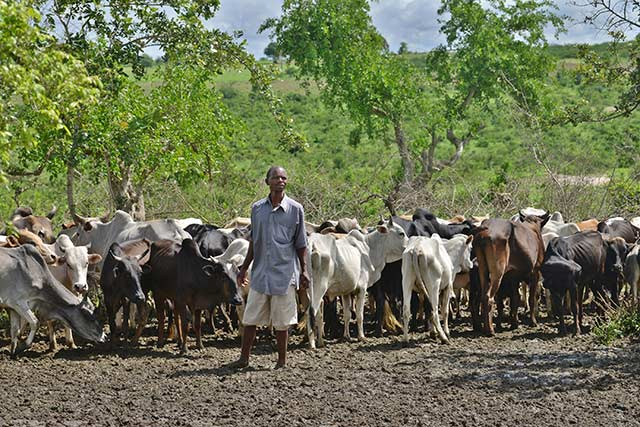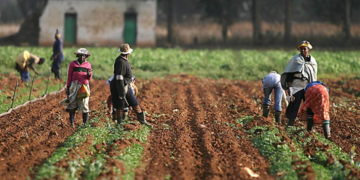Recognising the importance of water access for consumption and agricultural use, the USAID, through it’s Water for Agriculture activity, implemented by its partner, Catholic Relief Services (CRS), has increased access to water for smallholder farmers and livestock herders in Adamawa, Borno and Yobe States.
Director of the Office of Economic Growth and Environment, USAID, Michelle Corzine, who spoke at the Water for Agriculture Closeout & Dissemination Event, held in Abuja, said about 55,000 farmers and herders in Adamawa, Borno, and Yobe States have benefited from the project, with over 1,600 farmers adopting improved agriculture in the states, over the four years of implementation.
“Efficient water use is also essential, so we trained farmers in improved agriculture production practices to boost productivity capabilities of smallholder farmers. Over the four years of implementation, the activity increased access to water for almost 55,000 farmers and herders in Adamawa, Borno, and Yobe States.
“Water for Agriculture trained over 1,600 farmers to adopt improved agriculture. Across the three states we constructed or rehabilitated 21 water facilities, including dams, irrigation schemes, boreholes, and water retention ponds.
“While we know that much is still to be done, we are confident that the water management principles and agriculture practices will be shared with other communities,” she said.
In his opening remarks, the CRS Country Representative, Paul Townsend, said the Water for Agriculture Activity has helped to reduce the frequency of conflict between herders and farmers as it delivered water infrastructure and expanded the agriculture season for smallholder farmers.
She said “In the zones targeted by the WFA Activity, improved access to irrigation has led to increased yields for farmer, improvements in income for both herders & farmers, and has opened opportunities to strengthen the entire food system (through the extended farming season and investments in new value chains such as fish and other)
“We have also seen promising signs of improved social cohesion; And I believe that this is the “glue” that will hold things together and will help ensure sustainability of our investment.
“We know that climate change is threatening the gains in agriculture but see opportunity to strengthen our collective action and to continue investing in community resilience and the shared use of natural resources.”
Townsend said CRS has worked in Nigeria for over 25 years, implementing health, emergency response, agriculture, and livelihoods programs in 35 states, adding that the organisation partners with the Catholic Church, other faith-based and community-based organisations, the private sector, local and international NGOs, and government institutions to implement a range of programs to build the resilience of vulnerable communities.
In their goodwill messages, representatives from the benefitting states thanked the USAID and the CRP for the opportunity, which according to them, have improved the livelihood of smallholder farmers and herders in the states.
The Permanent Secretary, Ministry of Agriculture, Adamawa State, Mrs Dorothy Augustine, said the capacity building for farmers in the state has changed the way they do their farming.
Also, she said from the yield the farmers get, it has transformed to improved source of livelihood, while expressing the state government’s willingness to be part of future interventions.











